24+ Years Experience
Specialist Epoxy Resin Flooring

Enquire Today For A Free No Obligation Quote
Understanding Epoxy Resin Flooring
Epoxy resin flooring is a popular choice for both residential and commercial spaces due to its durability, versatility, and aesthetic appeal. This type of flooring is created by mixing epoxy resin and a hardening agent, which results in a strong, seamless, and glossy surface that can withstand heavy use.
Epoxy resin is a synthetic material that is created by chemically bonding epoxide resin and a curing agent. This chemical reaction forms a rigid and durable material that is resistant to stains, spills, and damage. Epoxy resin flooring is commonly used in areas that require a high level of cleanliness and hygiene, such as kitchens, garages, hospitals, and industrial facilities.
Choosing epoxy resin flooring has several advantages. It is highly resistant to chemicals, abrasion, and impact, making it a long-lasting and low-maintenance flooring option. It is also easy to clean, provides a smooth and seamless surface, and can be customized with different colors, textures, and patterns.
In order to maintain the appearance and performance of epoxy resin flooring, proper care and maintenance are essential. Regular cleaning, preventing spills and stains, and using the right cleaning methods are key to preserving the integrity of the flooring.
By understanding the properties of epoxy resin flooring and following the right maintenance tips, you can keep your flooring looking pristine and extend its lifespan. In the following sections, we will explore effective tips and tricks for maintaining epoxy resin flooring, dealing with common stains and spills, removing them using appropriate methods, and preventing future incidents. We will discuss the importance of professional cleaning and maintenance services for epoxy resin flooring.
Understanding epoxy resin flooring is crucial for maintaining its appearance and durability. Here are some important factors to consider:
| – Composition: | Epoxy resin flooring is made up of a mixture of resin and hardeners, which creates a strong and glossy surface. |
| – Application: | The flooring is applied in multiple layers onto a prepared substrate, resulting in a seamless and long-lasting finish. |
| – Benefits: | Epoxy resin flooring offers high resistance to chemicals, stains, and impact, making it ideal for commercial and industrial environments. |
| – Maintenance: | Regular cleaning with non-abrasive solutions and avoiding harsh chemicals will help preserve the integrity of the flooring. |
| – Pro-tip: | To prevent potential damage, it is important to understand the specific cleaning and maintenance requirements recommended by the manufacturer. |
Epoxy resin is a durable flooring material made from a combination of resin and hardener. It is highly resistant to chemicals, stains, and impact, making it ideal for industrial, commercial, and residential applications. Epoxy resin flooring has a seamless and smooth finish, which is easy to clean and maintain. It provides a high-gloss appearance and can be customized with different colours and patterns. Epoxy resin flooring is commonly used in high-traffic areas such as garages, warehouses, hospitals, and kitchens. It is also popular for its moisture resistance and ability to withstand heavy loads.
Epoxy resin flooring offers several benefits that make it a popular choice for both residential and commercial spaces. It is highly durable and can withstand heavy foot traffic, making it ideal for high-traffic areas like garages and industrial settings. Additionally, it is resistant to chemicals and spills, making it a suitable option for areas where spills are likely to occur, such as kitchens or laboratories. Epoxy resin flooring is also easy to clean and maintain, requiring only regular sweeping and mopping to keep it looking clean and glossy. Furthermore, it is a versatile flooring option that can be customized to suit different design aesthetics, allowing it to mimic various materials like marble or terrazzo. Lastly, properly installed and maintained epoxy resin flooring can last for decades, providing a long-lasting and cost-effective flooring solution. By choosing epoxy resin flooring, you can ensure a durable, low-maintenance, and versatile flooring option that will enhance the look and functionality of your space for years to come.
To maintain your epoxy resin flooring, here are some essential tips. We will discuss the significance of regular cleaning and ways to prevent spills and stains. By following these guidelines, you can keep your epoxy resin flooring in excellent condition and ensure its durability over time. Let’s begin with the maintenance of your elegant and attractive flooring.
Regularly cleaning is essential for maintaining the beauty and longevity of epoxy resin flooring. Here are some tips to ensure your floor remains pristine:
Dealing with stains and spills on epoxy resin flooring can be quite a hassle. In this section, we’ll explore the most common culprits that can mar the pristine surface of your flooring. From oily and greasy stains to pesky food and beverage spills, we’ll provide effective tips and tricks to combat these issues. We’ll also address the challenge of paint and ink stains that can easily find their way onto your epoxy resin flooring. Say goodbye to those unsightly blemishes as we reveal the secrets to keeping your floor looking flawless.
To effectively remove oil and grease stains from epoxy resin flooring, follow these steps:
Epoxy resin was discovered in the 1930s by researchers at the Swiss chemical company Ciba-Geigy, who stumbled upon its remarkable adhesive properties. Originally used in the aerospace industry, epoxy resin quickly found its way into various applications, including flooring. Today, epoxy resin flooring is highly regarded for its durability, resistance to chemicals, and easy maintenance. By following the correct cleaning techniques, you can keep your epoxy resin floor looking pristine and free from oil and grease stains.
When dealing with food and beverage spills on epoxy resin flooring, it is important to act quickly to prevent staining and damage. To effectively clean up these spills, follow these steps:
1. Immediately wipe up any spills using a clean cloth or paper towel.
2. Rinse the area with warm water to remove any residue.
3. If the spill leaves a stain, create a mixture of mild detergent and warm water.
4. Gently scrub the stained area using a soft brush or sponge.
5. Rinse the area again with warm water.
6. For stubborn stains, you can try using a mixture of vinegar and warm water.
7. Apply the solution to the stain and let it sit for a few minutes before scrubbing.
8. Rinse the area thoroughly with warm water and dry with a clean cloth.
Remember to always test any cleaning solutions on a small, inconspicuous area of the epoxy resin flooring before applying them to the stain.
Paint and ink stains are a common occurrence on epoxy resin flooring, but they can be effectively removed with the right methods. Below are some tips to help you deal with paint and ink stains on your epoxy resin floor:
True story: A homeowner once spilled a can of paint on their epoxy resin garage floor. By promptly following these steps, they successfully removed the paint without causing any damage to the floor’s finish.
When it comes to removing stains and spills from your epoxy resin flooring, you require effective methods that can do the job. In this section, we will explore different techniques that are highly effective in restoring your flooring to its original condition. From general cleaning steps to using everyday household ingredients such as vinegar and baking soda, we will reveal tips and tricks that will leave your epoxy resin flooring looking spotless. Get ready to say goodbye to those stubborn stains and spills once and for all!
General Steps for Cleaning Stains and Spills
Fact: Regular and proper cleaning of epoxy resin flooring helps maintain its durability and appearance for an extended period.
Using mild detergents and warm water is an effective method for cleaning stains and spills on epoxy resin flooring. Here is a step-by-step guide:
Remember to always follow the manufacturer’s guidelines for cleaning and maintenance of your epoxy resin flooring.
Using vinegar is an effective and natural method for removing stubborn stains from epoxy resin flooring. Here is a step-by-step guide on how to use vinegar to tackle those tough stains:
Vinegar is a versatile and affordable cleaning solution that can effectively remove a variety of tough stains from epoxy resin flooring. Give it a try and enjoy a clean and spotless floor.
Fun fact: The use of vinegar as a cleaning agent dates back to ancient times, where it was commonly used by the Egyptians and Romans for various cleaning purposes. Its acidic properties make it a powerful and natural cleaner for stubborn stains.
Using baking soda is an effective method for removing tough stains from epoxy resin flooring. Here are the steps to follow:
Jane had a stubborn ink stain on her epoxy resin flooring. She tried various cleaning methods but had no luck. As a last resort, she used baking soda. Following the steps above, the ink stain gradually disappeared, leaving her with a spotless floor. Jane now relies on baking soda to tackle any tough stains on her epoxy resin flooring.
Using commercial epoxy cleaners is an effective method for removing tough stains and spills from epoxy resin flooring. Follow these steps when using these cleaners:
1. Prepare the area by removing any loose dirt or debris.
2. Read the instructions on the commercial epoxy cleaner and dilute it if necessary.
3. Apply the cleaner to the stained or spilled area using a mop or sponge.
4. Allow the cleaner to sit on the surface for the recommended amount of time.
5. Use a scrub brush or soft bristle broom to agitate the cleaner and loosen the stain or spill.
6. Rinse the area thoroughly with clean water to remove the cleaner and any residue.
7. Dry the floor completely using a mop or towel.
Remember to always follow the manufacturer’s instructions and test the cleaner in a small, inconspicuous area before applying it to the entire floor. Using commercial epoxy cleaners can help restore the appearance of your epoxy resin flooring.
To ensure the longevity and beauty of your epoxy resin flooring, it is crucial to protect it from future stains and spills. In this section, we will discuss effective strategies that can help you safeguard your flooring investment. These techniques include using protective mats and rugs, as well as applying specialised sealants and topcoats. By implementing these methods, you can add an extra layer of defence against potential damage. Say goodbye to the allure of stains and spills on your epoxy resin flooring by learning these expert tips and tricks to prevent them.
To ensure the longevity and durability of your epoxy resin flooring, it is essential to apply sealants and topcoats. Follow these steps:
By applying sealants and topcoats, you can protect your epoxy resin flooring from stains, scratches, and wear, ensuring its top condition for years to come.
Professional cleaning and maintenance are essential for keeping your epoxy resin flooring in top shape. In this section, we will discuss the secrets to effectively maintaining your epoxy resin flooring. We will explore when it is necessary to call in the professionals for assistance and provide insights into selecting the appropriate cleaning service to keep your floors looking impeccable. It is important to ensure that your epoxy resin flooring remains a showcase of cleanliness and durability.
If you’re facing persistent stains or spills on your epoxy resin flooring, you may need to seek professional help. Professional cleaning services have the expertise and equipment to effectively remove tough stains and restore the appearance of your flooring. They can also provide recommendations for ongoing maintenance to prevent future stains and spills. It’s important to assess the severity of the issue before seeking professional help. Minor stains can often be treated with mild detergents or homemade solutions, saving you the expense of hiring a professional. Remember, prevention is key to maintaining the longevity of your epoxy resin flooring. Regular cleaning and proper care can help avoid the need for professional intervention.
Choosing the appropriate cleaning service for your epoxy resin flooring is vital in order to preserve its durability and appearance.
By selecting the right cleaning service, you can maintain the longevity and aesthetic appeal of your epoxy resin flooring.
To remove stains from your epoxy floor, first, try using a mixture of dish soap and water. Soak a synthetic fabric mop in a bucket of water with about 1/3 cup of dish soap and mop the stained area. If the stain persists, you can use a solution of ammonia and water in a ratio of 4 or 5 ounces of ammonia per gallon of water. Mop the stain with this solution and wait for the floor to dry.
If you have a minor spill on your epoxy floor, it is best to wipe it up immediately with a clean cloth. This will help prevent the spill from spreading or causing any damage to the floor.
To maintain the cleanliness of your epoxy floor, it is important to regularly sweep the floor with a soft bristle broom or a commercial dust mop to remove dirt, debris, dust, wood shavings, and trash. Additionally, you can mop the floor using a mixture of dish soap and water. Soak a synthetic fabric mop in a bucket of water with about 1/3 cup of dish soap and cover the entire floor.
When cleaning your epoxy floor, it is important to avoid using harsh chemicals like acid-based cleaners or abrasive liquids. These can cause damage to the epoxy surface. Additionally, avoid using natural fiber mops as they can leave bits behind and potentially scratch the floor.
For deep cleaning and removing tough stains on your epoxy floor, it is recommended to seek professional assistance. They have the knowledge and guidance to effectively remove stubborn stains without causing any damage to the flooring surface.
To enhance the performance and longevity of your epoxy floor, it is important to follow regular cleaning routines and proper floor care techniques. This includes sweeping away sand, dirt, and loose debris regularly, using mats or welcome mats to minimize the amount of dirt brought into the space, and taking protective measures such as using mouse pads or welding pads under heavy machinery to prevent damage to the epoxy surface.
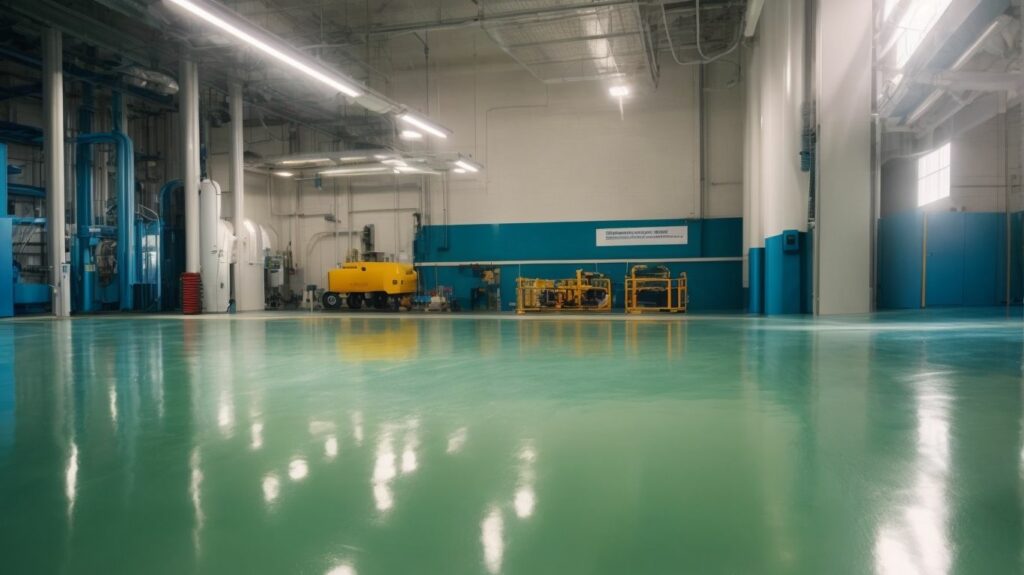
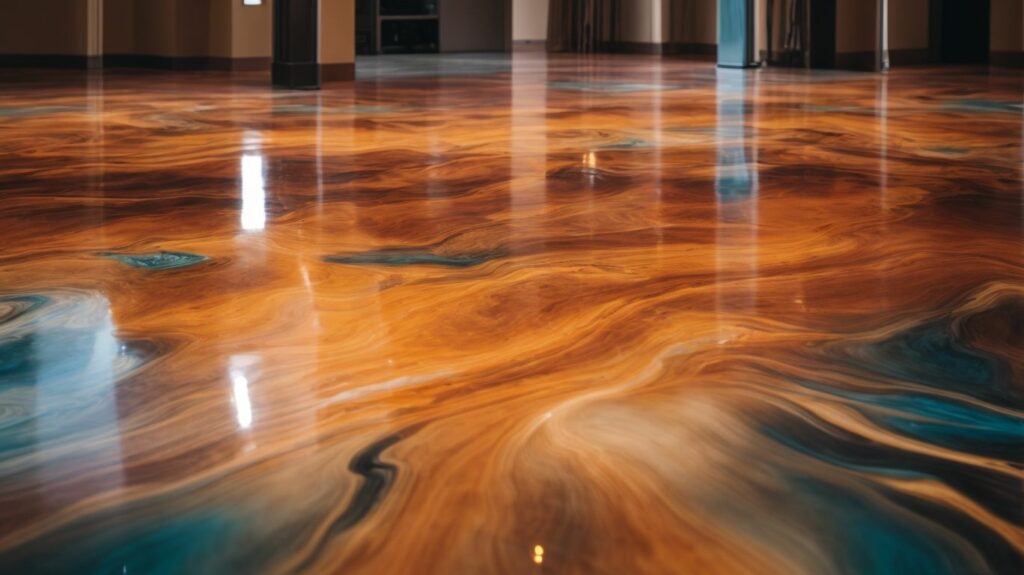
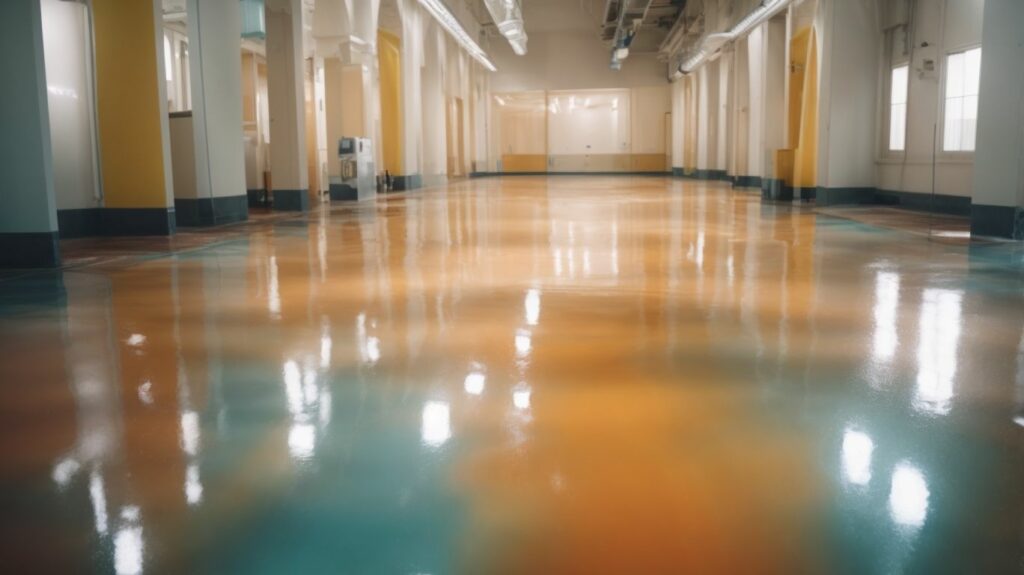


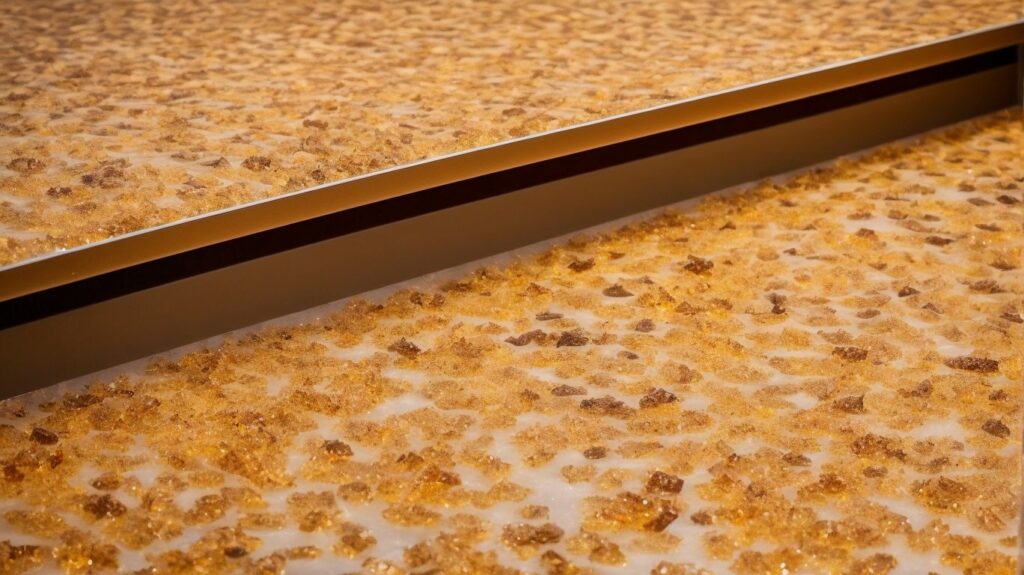
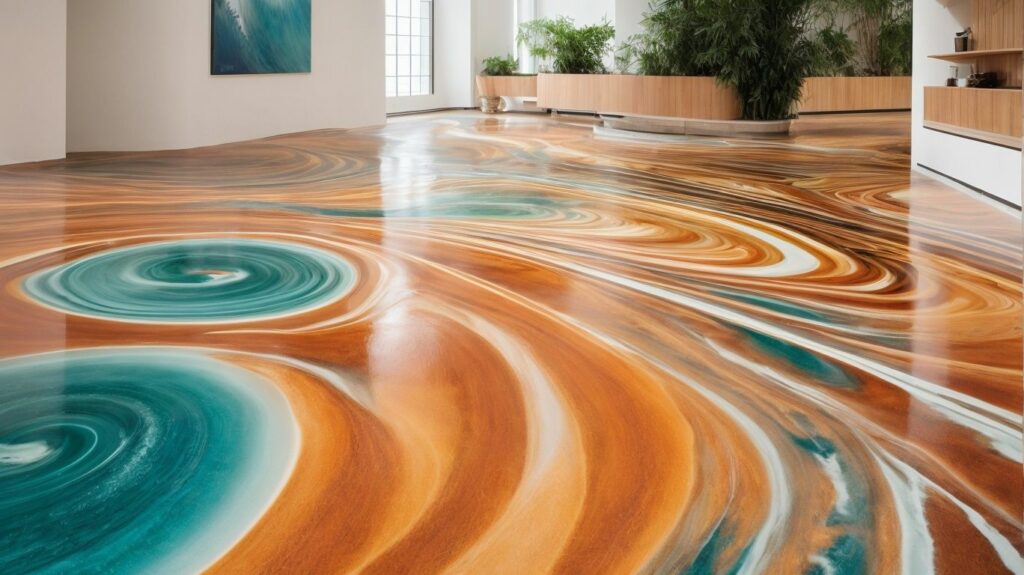
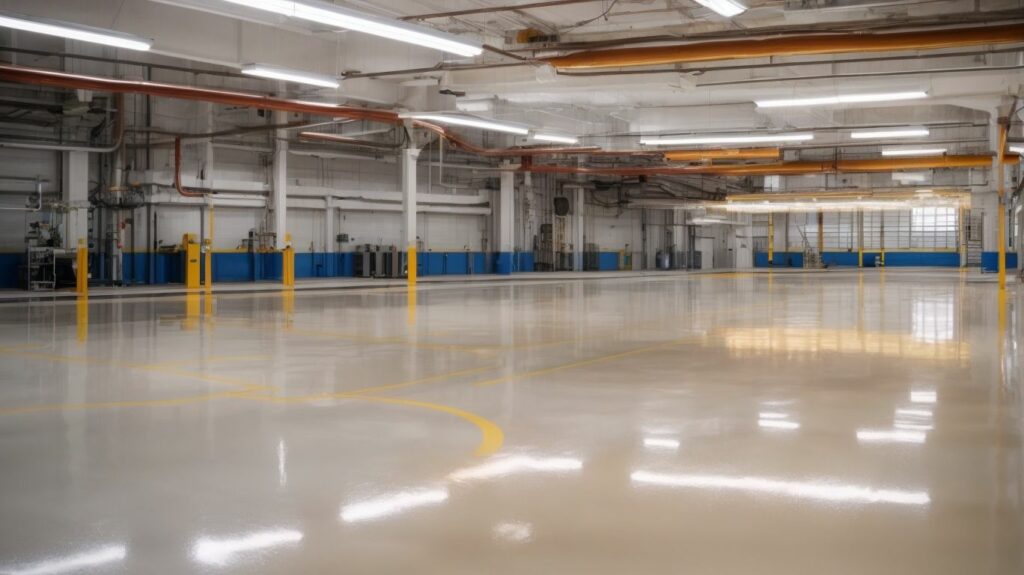
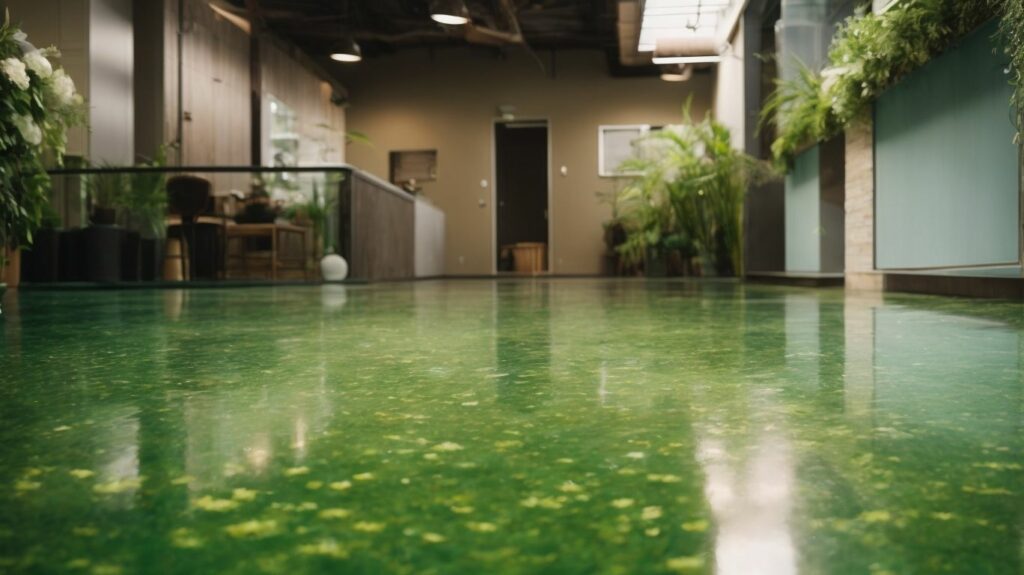

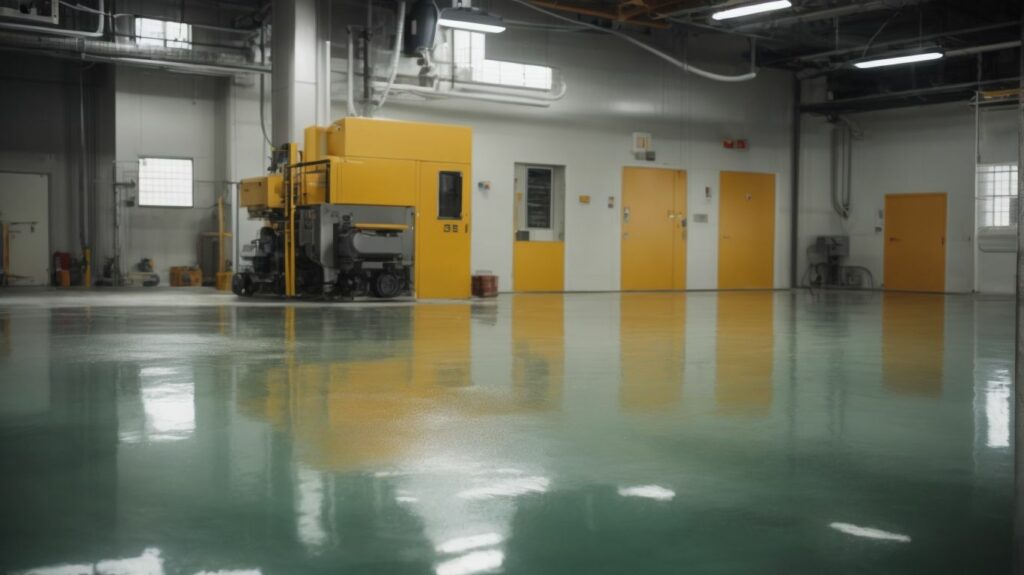

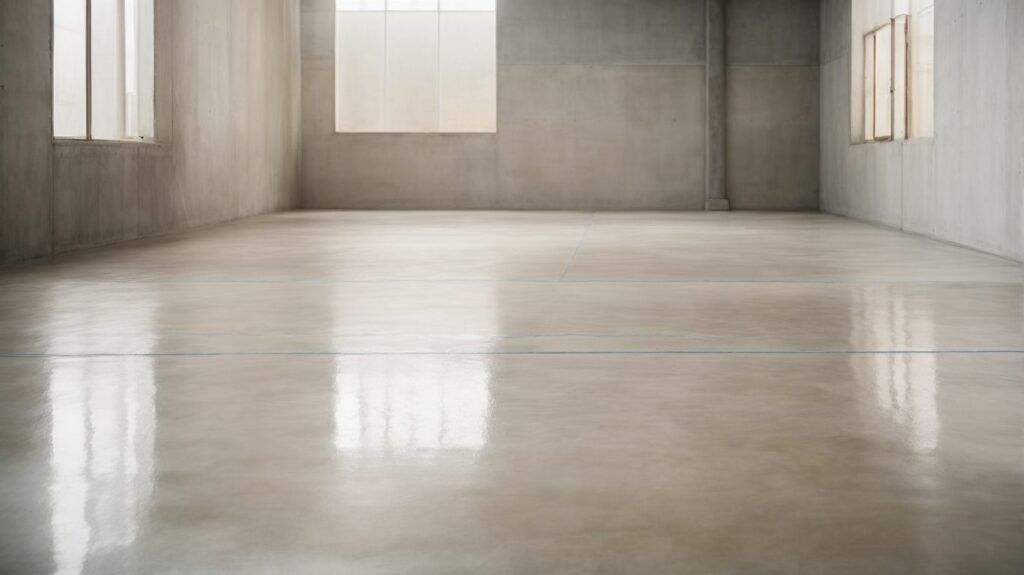


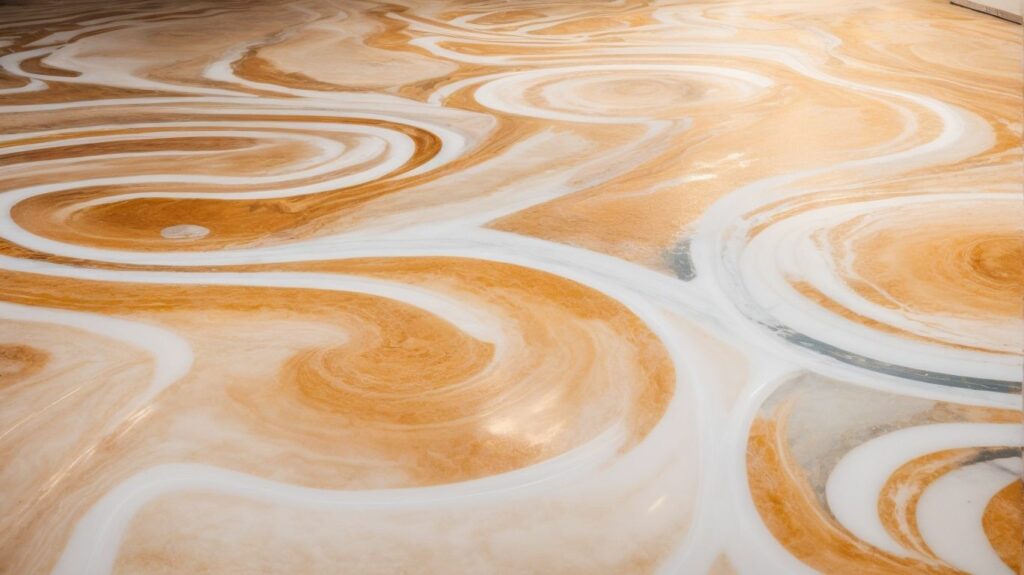

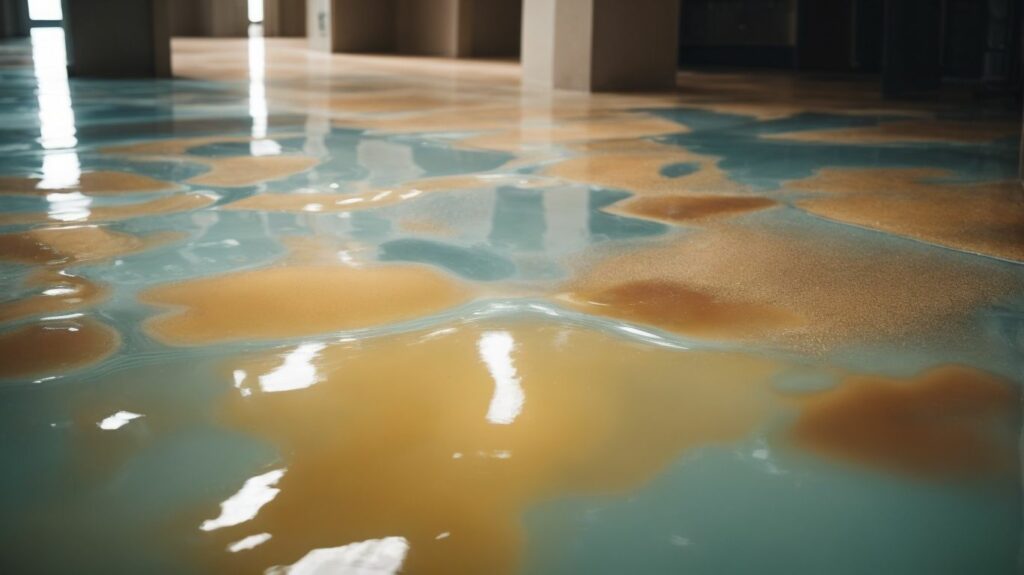
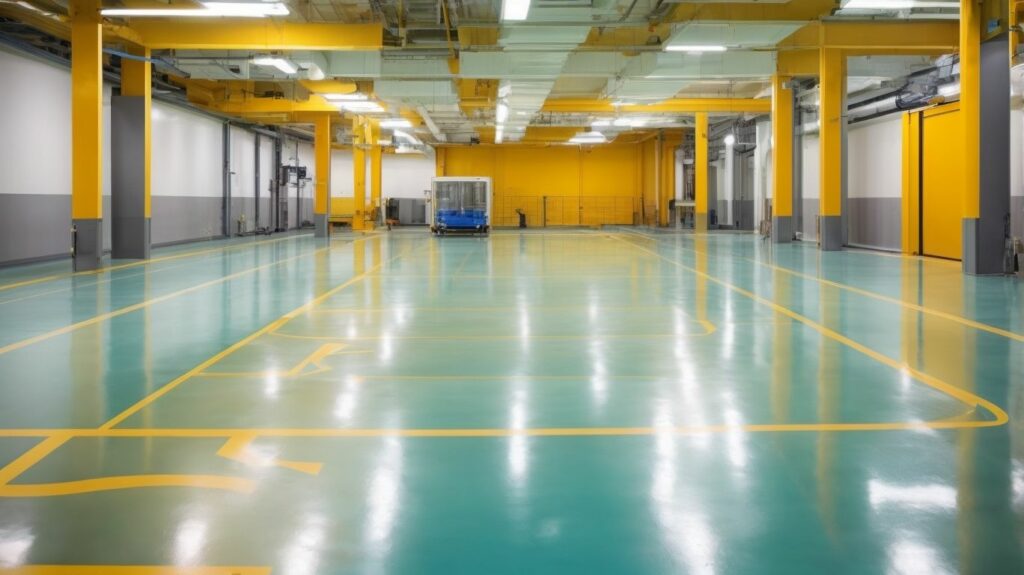
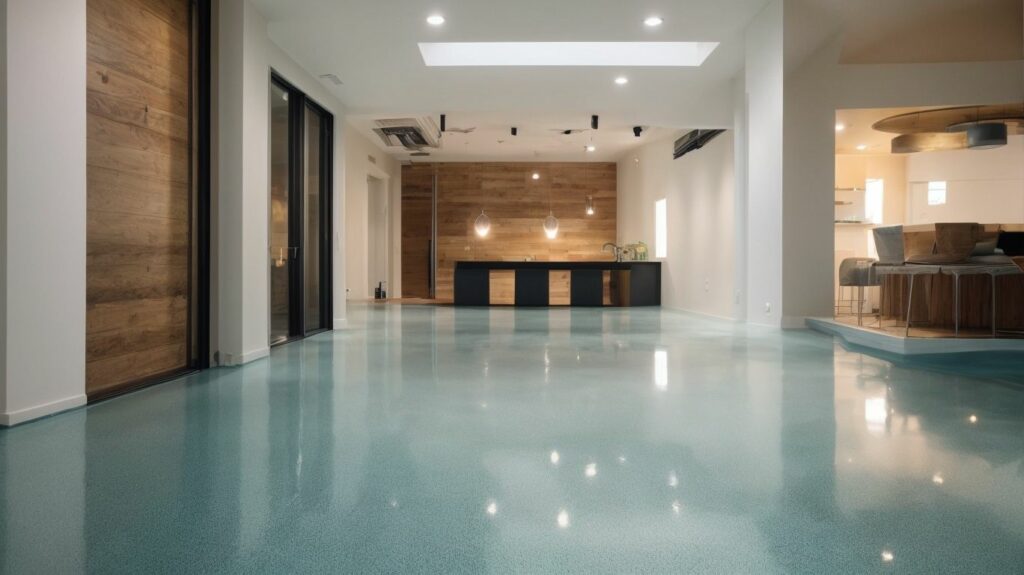

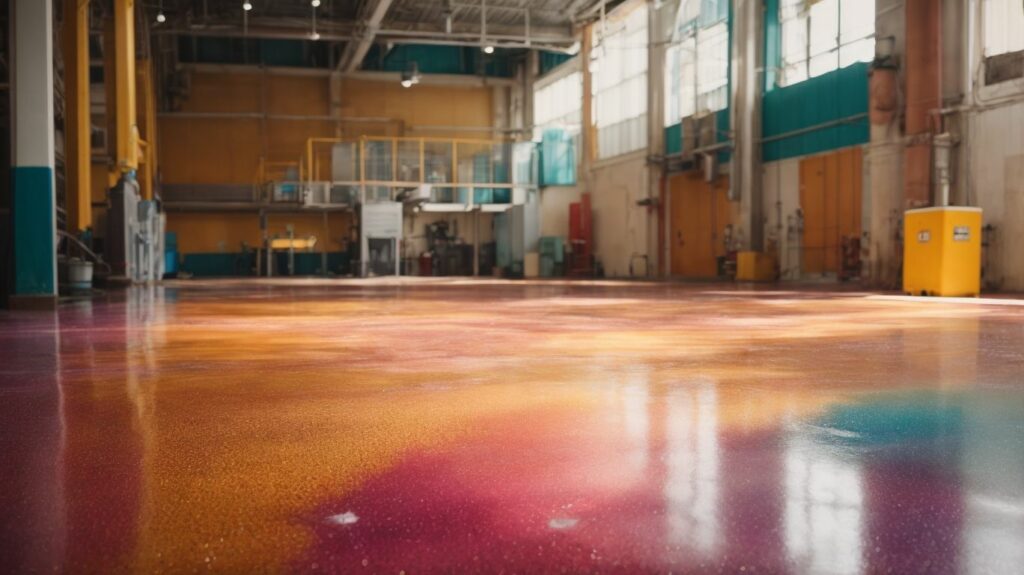
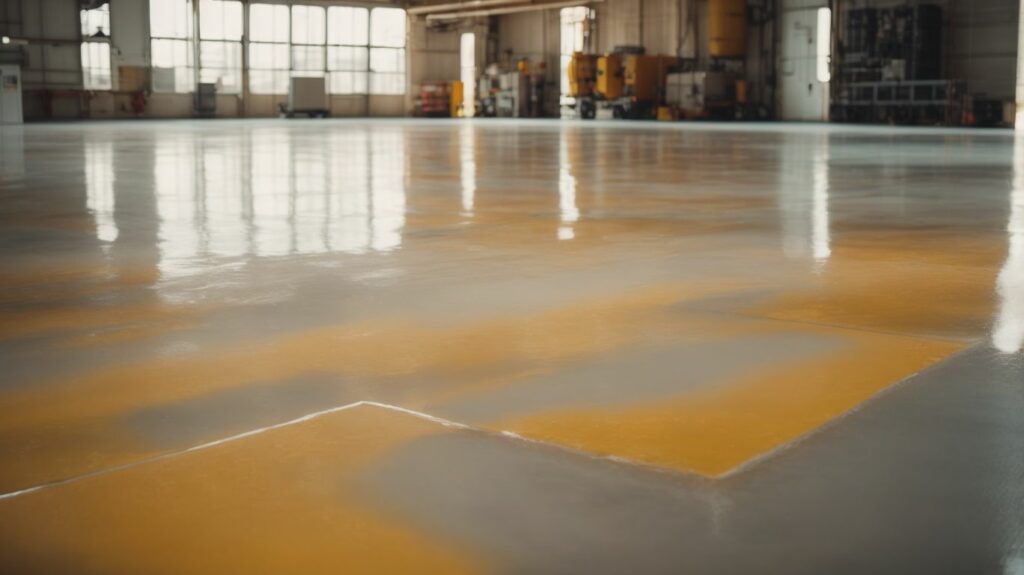
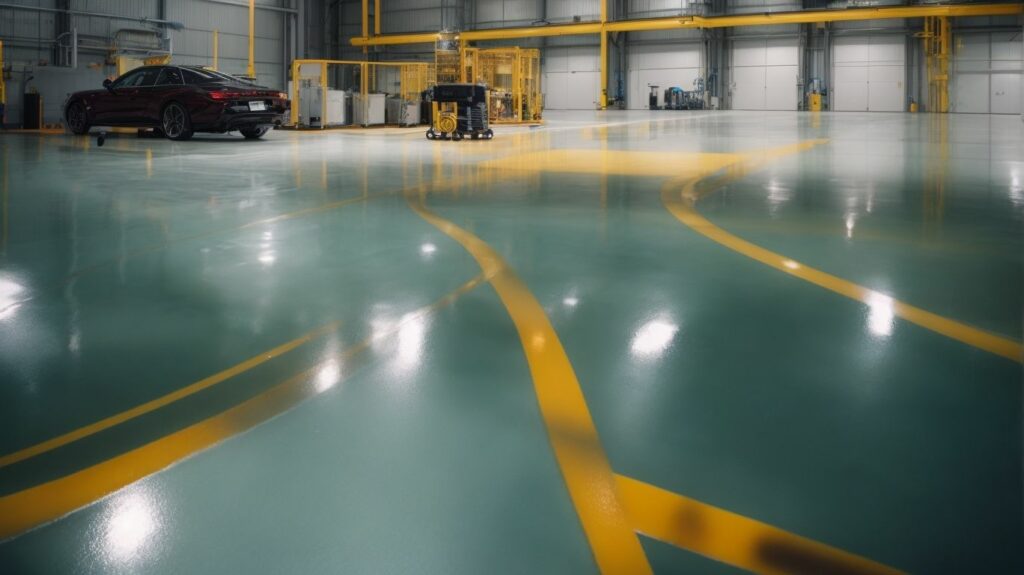

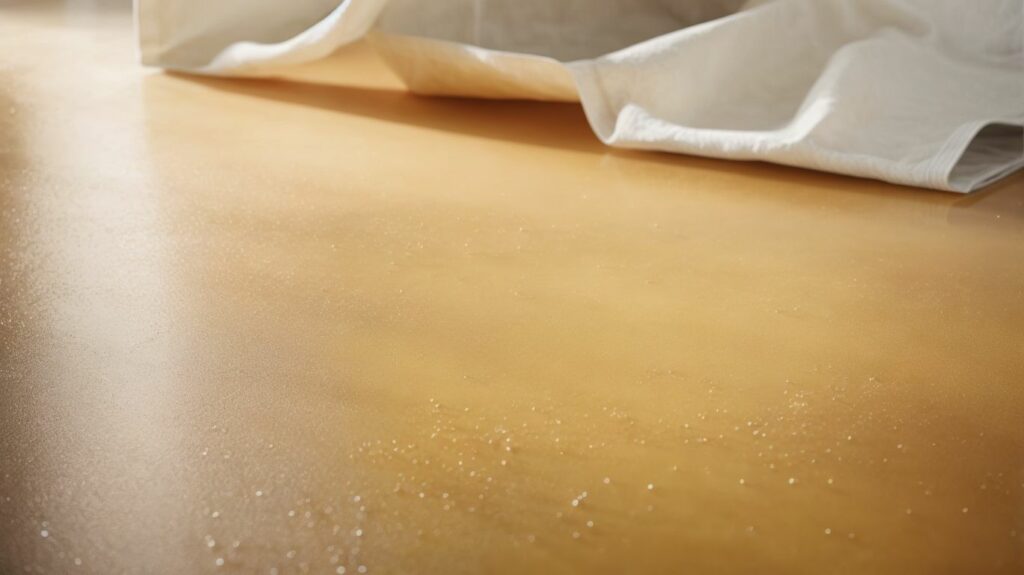
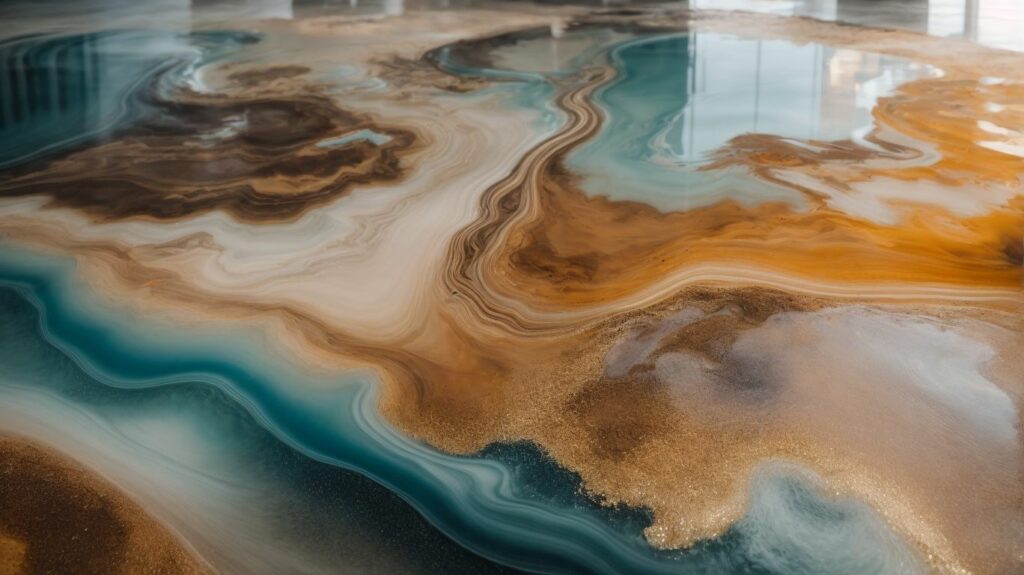
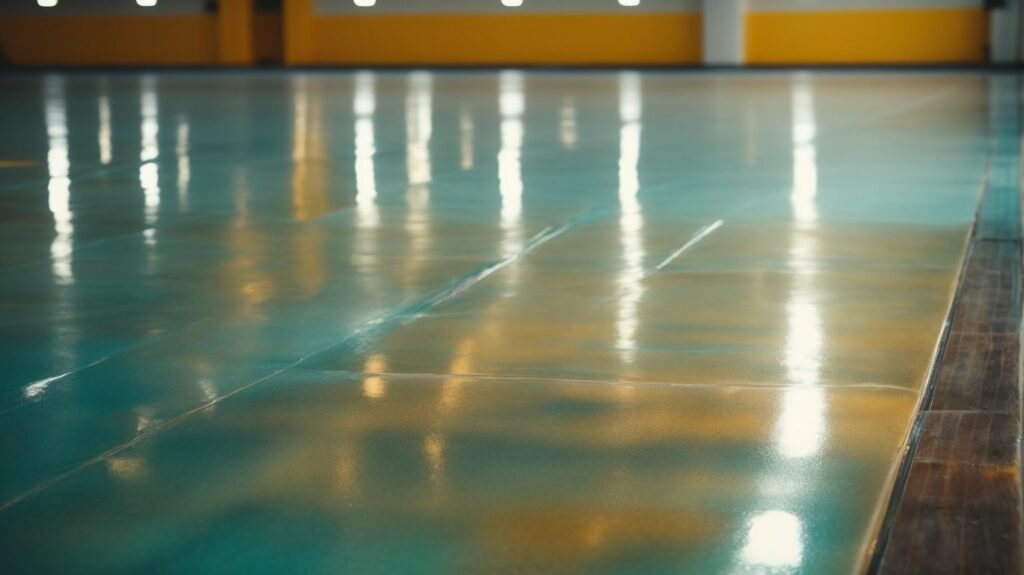


We Aim To Reply To All Enquiries With-in 24-Hours